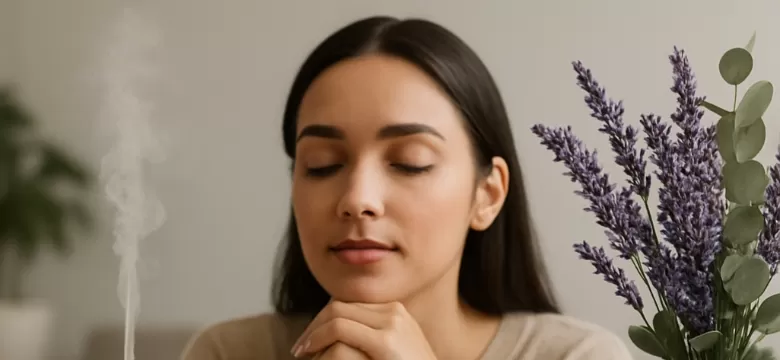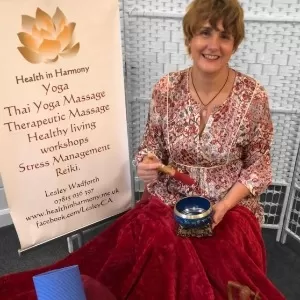Introduction
Clinical Aromatherapy is a holistic approach that utilizes pure essential oils to enhance overall well-being. By considering factors like skin health, mood, and lifestyle, this therapy offers a natural way to address physical and emotional concerns. Guided by a trained professional, it provides safe, personalized treatment.
Clinical Aromatherapy
Clinical Aromatherapy can be described as “the use of Pure Essential Oils on the mind and the body”'.
This would be the most simplistic of definitions, as the art and science of Aromatherapy has many different facets. It is a truly holistic therapy, considering the whole person-
- their skin condition,
- any existing ailments and medical treatment,
- their current mood,
- their lifestyle,
- eating habits,
- spiritualityhormonal stage.
When we use nature's gifts of pure essential oils, we are treating ourselves and our senses in every possible way.
Aromatherapy is not a new or trendy method of healing.
Aromatherapy is not a new or trendy method of healing.Indeed, it dates back throughout history, through all ages and all cultures. Our most ancient ancestors knew the benefits of their local plants for healing purposes. They may not have known the scientific terms, nor understood the process of infection as we do today, but they knew that if they burnt a particular wood on their fires at night, it would not only ward off the cold and the dangerous animals, but the smoke would make people sleepy. Other plants burnt on the fire could cause a feeling of euphoria. Tribal elders, Shamans or healers, would learn to take advantage of this knowledge, using it for special ceremonies. Imagine how powerful these dramatic effects would make them appear!
The use of plants and, later, essential oils extracted from plants, has been recorded as used by the Ancient Egyptians, Ancient Greeks, Romans, Ancient India, the Middle Ages right up to modern times.
During the First World War a French scientist named Renee Maurice Gattfosse was researching the use of essential oils. One day, during a laboratory experiment, he badly burned his hand and plunged it into the nearest vat of cold liquid, which just happened to be a vat of lavender oil. He was amazed at the relief from pain he felt and at the incredibly quick healing that followed. This injury led him to further research the effects of essential oils, and for him to coin the term 'Aromatherapy'. He used Essential oils in the treatment of some of the horrendous injuries the soldiers received.
Today
Today, many of the medicines that we buy over the counter or receive from our doctor are made from synthetic substitutes to replicate the properties present in many plants. The pharmaceutical companies take out the ?active ingredients ? shown to be therapeutic in a plant, and make a synthetic substitute for it. The problem with this is that in nature the plant contains parts which will cancel out any negative parts, for example a skin irritant.
This process is known as 'quenching'. All plant parts work in synergy together., That is, the parts of the plant blend together to form the safest and most effective treatment. This results in very few side effects when used safely. Sadly, modern medicines have many other chemicals added to them which can cause many side effects.
Today many people are moving towards, simple, effective, safe, natural therapies. Holistic medicine, of which Aromatherapy is a part, treats the whole person rather than the symptoms of disease.
21st Century
Having been a Registered Nurse for over 25 years and in the Wellness sector for a similar length of time, I would never advocate using natural remedies instead of medically researched treatments for anything serious.
However, in the 21st Century we are fortunate enough to have a vast array of knowledge available to us. We can make use of both our traditional herbal past and take advantage of scientific advances to take an integrated approach to the care of our health, using all forms of medicine to our full advantage. We do not need to use an 'either/or' approach.
The use of Essential Oils under the guidance of a Clinical Aromatherapist can be particularly useful for those navigating the many known symptoms of PMT, peri-menopause, and the post-menopausal years.
Essential oils, derived from plants, each have their own unique chemical components that can help with issues such as:
• Sleep issues.
• Aches and pains.
• Mood swings.
• Skin changes.
• Hot flushes.
• Stress and anxiety.
Although safe for most people, some Essential Oils do have contra-indications, and the guidance from a Clinical Aromatherapist is very important, especially for anyone with underlying medical issues or serious symptoms.

